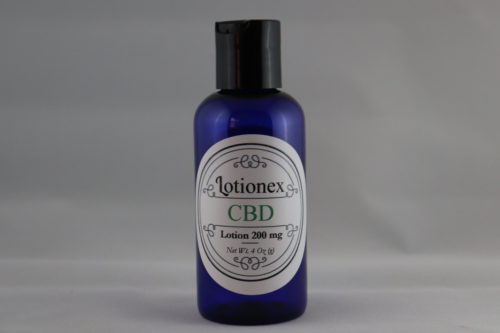
Marijuana: A New Frontier for Health Clubs?
Marijuana: A New Frontier for Health Clubs?Liz McDonald has some advice for yogis and other health club professionals considering adding marijuana to their member experience.
“I think it [adding marijuana] has to be done for the right reasons,” McDonald told Club Industry. “I’m not a fan of, ‘Hey, we’re going to do this because it’s trending.’ I take yoga very seriously. I think it should not be something that is habitual, but more sacred.”
McDonald said she was ahead of her time in 2010 when she opened a cannabis-“enhanced” yoga class at her Los-Angeles-based Brazilian Yoga studio, which ceased operating in 2015. She described the daily 4:20 p.m. class as a “mindful” yoga experience. (The number 420 in marijuana culture represents cannabis consumption.)
“People just weren’t ready for it,” McDonald said about the experience.
However, American attitudes toward cannabis have relaxed in recent elections, and some entrepreneurs may see growth opportunities through marijuana-related offerings. McDonald’s experience is one such example in the health club industry, but there are others navigating regulations to court cannabis exercisers.
Marijuana remains illegal under federal law, but 26 states plus the District of Columbia have legalized marijuana in some form as of 2017. California, Massachusetts, Maine and Nevada passed measures in the 2016 election legalizing recreational marijuana to join Colorado, Washington, Oregon and Alaska as recreational marijuana-legal states.
Last year, 420 Games founder Jim McAlpine announced plans to open Power Plant Fitness in San Francisco with retired NFL running back Ricky Williams. The health and wellness center is expected to open in May and will use cannabis as one of many supplements to “attain and maintain” the “symbiotic state of wellness,” according to its website. Power Plant Fitness currently offers a line of boot camps in locations around the country.
When Power Plant Fitness opens for business, members will be allowed to consume their own marijuana at the gym before or after workouts. The club also will offer its own line of marijuana-infused edibles designed for pre-workout focus and post-workout recovery.
Also in San Francisco are author Dee Dussault’s public Ganja Yoga classes, which are held in private spaces near public transit stations on Wednesdays and Thursdays. Clients can register online to attend the $30-per-session classes where sun-grown organic joints, paleo edibles and borrowed vaporizer pens are available.
In Denver, voters passed a ballot measure in the 2016 election permitting the social use of marijuana at businesses. Bipartisan legislation is currently winding its way through the Colorado General Assembly that, if passed, would make Colorado the first state to allow pot clubs. After the ballot measure passed, Denver-based yoga and cycling studio The Rhythm Revolution expressed interest in applying for a pot club permit.
“When we talk about tapping into the senses, using cannabis as an extra add on could potentially heighten the sensory experience,” owner Jasmine Anderson told K-USA TV in November 2016. “I’m absolutely a supporter of that.”
POPULAR NOW
Fired Equinox Trainer Kills General Manager, Injures Another Employee
NIRSA Awards 9 Collegiate Recreation Facilities for Design, Functionality
Recent Growth Positions Retro Fitness to Operate 250 Clubs by 2019
The Drug Enforcement Agency lists cannabis as a Schedule I controlled substance, which is defined as a drug with no currently accepted medical use and a high potential for abuse. In February, White House press secretary Sean Spicer told reporters the Department of Justice “will be further looking into” the “big difference” between medicinal and recreational use, and he said he believed there would be “greater enforcement” of recreational cannabis.
Enforcement policies at the federal and state levels can raise questions for entrepreneurs in the health club industry thinking about capitalizing on cannabis. The International Health, Racquet and Sportsclub Association (IHRSA) advises club operators to “follow the rules in your state” and has no additional policy advisement for marijuana in clubs, Meredith Poppler, vice president of communication and leadership engagement, IHRSA, told Club Industry.
The regulation differences between California and the federal government led to a balancing act for McDonald as she tried to grow Brazilian Yoga in Los Angeles.
McDonald opened her studio after teaching cannabis yoga privately in homes for two years after a 2008 trip to Brazil. It was in Brazil where McDonald added cannabis to yoga for the first time since becoming a yogi in 1997, and the esoteric ideas she studied became evident, she said.
The Brazilian Yoga cannabis classes attracted cannabis and non-cannabis consumers alike with clients paying an average of $13 to $14 per class, McDonald said. The average class size was eight clients with a range between three students on a slow day to 15 clients on a busy day. Private sessions ranged between $90 and $100 per person.
The class also attracted the media spotlight and brought scrutiny that nearly caused McDonald’s landlord to shut down Brazilian Yoga, she said.
“I had to make sure to really emphasize in every subsequent interview I did that there was no cannabis use on the property, and I had to run the class that way,” McDonald said.
Liability Issues
Selling marijuana inside a health club could present additional challenges for club operators. Obtaining coverage for retail marijuana sales is “very difficult,” said Jennifer Urmston-Lowe, national accounts manager at Sports & Fitness Insurance Corp.
“The bottom line is that it is still too early for the major U.S. insurance companies to consider covering marijuana sales,” Lowe said. “The major U.S. insurance companies have taken a firm stand not to insure the sales of marijuana and to continue to support drug testing for employee safety. Down the road, if the federal government was to legalize marijuana sales, and/or the legalized sales in the states are upheld in federal court, then the insurance companies would look at the court rulings and determine if and when they needed to develop a specialized insurance product similar to liquor liability policies that would provide coverage.”
Pending court cases are challenging whether states can legalize a substance that is illegal under federal law, and other pending cases focus on the legality of employee drug testing in the legalized states, Urmston-Lowe noted.
“Additionally, it would be difficult to obtain professional liability for nutritional counseling that would recommend the use of marijuana even in the states where recreational and/or medicinal use has been voted to be legal,” Urmston-Lowe said.
McDonald, who holds liability insurance as a yogi, designed the cannabis yoga class to be slow-paced to minimize physical risks to her clients. The issue of liability related to an individual’s physical risk while exercising under the influence of cannabis is another topic that may raise concerns for club owners, but there is no official guidance for the fitness industry on the issue.
The American Council on Exercise (ACE) was unable to give an official comment to Club Industry for this story, saying cannabis use during exercise is “outside the scope of our expertise.”
However, in a November 2016 ACE blog post, ACE Certified Trainer Pete McCall advises trainers to stop a client “immediately” if he or she is suspected to be under the influence because of marijuana’s “drastic” impact on motor skills.
“Even if an individual states that he or she ‘feels fine,’ they could risk serious injury if they exercise under the influence, and it is not worth testing your liability insurance,” McCall wrote.
CLUB INDUSTRY EDUCATION FREE, ONLINE AND ON-DEMAND
FREE: How to Make Your Club Exceptional
FREE: Build (and Make Money from) Your Own Subscription Channel
FREE: Wage and Hour Mistakes Plus Solutions That Could Save Your Club Millions
FREE: The Difference Between Your Members Working Out and Walking Out
FREE: Create Customer Loyalty and Grow Your Business with Heart Rate Training
Dr. Ed Bednarczyk, department chair, Department of Pharmacy Practice, University at Buffalo (New York), also expressed exercise safety concerns related to marijuana in a recent People report that profiled Power Plant Fitness. His biggest worry was people who ignore the cardiovascular effects of the active ingredient in cannabinoids, Tetrahydrocannabinol (THC), which increases heart rate and blood pressure when consumed.
“Is it going to be deadly or are we going to have people dropping on the mat or falling off machines?” Bednarczyk said. “I doubt that’s going to happen … These are long-term effects that we’re looking at.”
Within the yoga community, there is some debate about marijuana use by yogis.
“What I found is that a lot of people who were attracted to the class did have experience with cannabis,” McDonald said. “It was really nice what happened, and I didn’t anticipate this would happen: I became gateway yoga for stoners.”
Although marijuana programming presented some challenges for Brazilian Yoga, which rebranded to Atwater Yoga in 2014, McDonald’s studio closed in 2015 not because of cannabis but because property and zoning restrictions on signage limited McDonald’s ability to use promotional signage. To counter this, she offered constant specials and promotions to attract new clients. Eventually, another business outbid McDonald to rent the studio space. McDonald closed the club and moved to San Francisco to pursue her doctorate in physical therapy. She continues to teach yoga privately as 4:20 Yoga and explores ways to rebrand herself.
McDonald envisions a future where she can blend her Eastern knowledge and Western knowledge to bring “deep healing” to people. However, she has concerns discussing business strategy and teaching cannabis yoga in public.
“Now that it’s fully legal [in California], it’s still kind of sticky,” McDonald said. “If you don’t have your own place, it’s still kind of tricky in terms of getting someone else to do it. Everyone is still a little bit scared the federal police will come in. I feel until it’s nationwide legal, people will be swimming in that gray area—a little bit lost, a little bit disoriented, and consequently, a little bit scared.”










































































